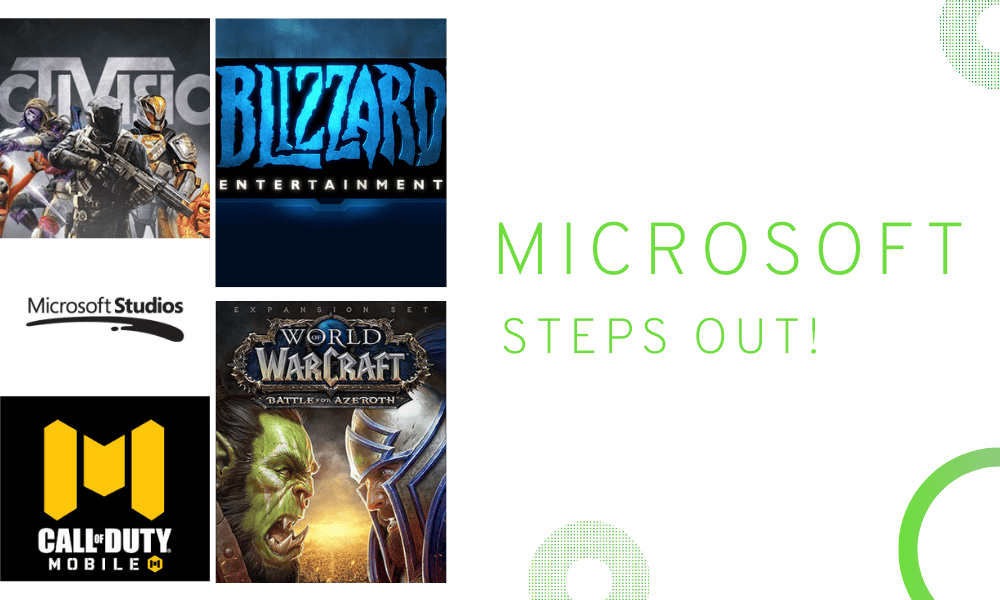Microsoft's agreement to pay nearly $69 billion for Activision Blizzard would represent the...

Microsoft's agreement to pay nearly $69 billion for Activision Blizzard would represent the highest price ever paid by a U.tech company in an acquisition.
Beaten by Google in Internet searches, Yahoo eventually sold it to Verizon for $4.5 billion in 2017. Satya Nadella is now trying again to put Microsoft in the record book.
On Tuesday, Microsoft announced it was buying video game publisher Activision Blizzard for nearly $69 billion, a price that would just about eclipse the richest U.tech deal in history.
In 2016, Dell bought EMC for $67 billion. Next is the JDSSDL deal, followed by IBM's $34 billion acquisition of Red Hat, which closed in 2019. Here's a Fun Fact about Microsoft:
| "when Microsoft asked their users what they wanted to be added to Office, they found 90% of the requested features were already there.” |
Microsoft has yet to get approval from Activision's shareholders and, more importantly, from regulators. Arm and AMD's deal to buy Xilinx has been delayed in regulatory review for more than a year.
For Microsoft, the purchase price is more than double what the 47-year-old paid. The largest acquisition to date was LinkedIn in 2016, which cost more than $26 billion.
But Nadella, who succeeded Ballmer as Microsoft's CEO in 2014, has the capital and an investor base that pushes him to be aggressive.
At the time of LinkedIn's announcement, Microsoft was valued at about $400 billion, so the purchase represented about 6.5% of its market cap.
When he tried to buy Yahoo, Microsoft's market cap was around $260 billion, meaning he would have given up almost 20% of the company. Today, Microsoft is valued at nearly $2.3 billion and is paying just 3% of its market cap to Activision.
Instead of using the increased stock value, Microsoft is paying Activision investors in cash. It's a massive burden, but Microsoft can afford it.
As of September 30, the company had $130 billion in cash and cash equivalents, 85% of which was in the form of short-term investments. Microsoft's purchase price is a 45% premium to Activision's closing price on Friday.
But Microsoft investors seem to agree. Shares fell just 2.4% on Tuesday, in line with many other tech stocks on an overall bearish day for the market.
That's in part due to Nadella's proven track record of integrating past acquisitions, including LinkedIn and GitHub, which Microsoft bought for $7.5 billion in 2018.
But it's more a reflection of the excitement surrounding gaming and the potential for Microsoft to expand its footprint beyond Xbox and its existing subscription. Service called Game Pass.
| Trending: Walmart Is Sneaking Its Way Through The Metaverse! |
"The cash offer to acquire ATVI for $68.7 billion represents the largest acquisition in Microsoft's history, but also brings attractive strategic value, particularly in the consumer technology space where Microsoft has a smaller product portfolio."
Piper Sandler, who advises buying the stock, wrote in a note following the announcement.
“Gaming and advertising represent two segments that together represent a long-term $1 trillion stock earnings opportunity for Microsoft.
Microsoft is also taking advantage of a regulatory environment that has pressured big tech but has mostly left Microsoft alone.
Executives at Apple, Google, Facebook, and Amazon have faced the wrath of elected officials in recent years who fear advertising, commerce, and mobile data are being consolidated into too few hands.
While these large-cap companies have mostly limited themselves to small acquisitions in tangent markets, Microsoft continues to make large swings.
"From a regulatory perspective, MSFT is not subject to the same level of scrutiny as other tech stars (Amazon, Apple, Facebook, Google)," Dan Ives, an analyst at Wedbush Securities, wrote in a report.
“Ultimately Nadella saw a window to make a big consumer bet while others are stuck in the regulatory spotlight and may not be able to track such an asset.
Still, a deal of this magnitude is sure to turn heads in Washington, D., and test whether Microsoft is still upholding that goodwill. You are not convinced that the anchor will achieve the goal.